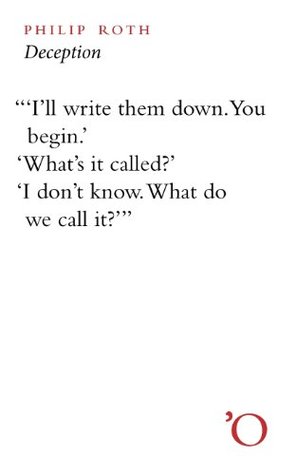More on this book
Kindle Notes & Highlights
“Perhaps it works better if only one participant in an adulterous affair complains about domestic dissatisfactions. If both go at it, it’s unlikely there’d be time for the thing itself.”
“Isn’t it possible that domestic dissatisfaction—as distinct from cultural displacement—has nothing to do with having fallen in love with you? Isn’t it possible that I’m not as burdened by all that as you are and consequently have less to say about it? Isn’t it possible that my predicament lies elsewhere?”
Nicole Kichko liked this
“So our story isn’t a love story, really—it’s a cultural story. That’s the one that interests you.” “That one always interests me.” “That explains the Gentile women, does it? You fall in love for the anthropology.” “Could be worse. There are other ways of addressing anthropological differences, you know. There’s the old standby hatred. There’s xenophobia, violence, murder, there’s genocide—”
“You know something, you’re hypnotized by bad behavior. You think it’s stylish.”
“He’s tamed you again. You were out of his control about three or four months ago, but he’s tamed you again.” “Why can’t it just get better?” “It never gets better. It’s like a play. They never get better, either. If you want to leave at the interval of a play, leave, because it’s not going to get any better.”
“What a carry-on! Why do they all magnify these things so much?” “Why do you all try to minimize them so much? In England, whenever I’m in a public place, a restaurant, a party, the theater, and someone happens to mention the word ‘Jew,’ I notice that the voice always drops just a little.” “Does it really?” “The way most people say ‘shit’ in public, you all say ‘Jew.’ Jews included.” “I really think that only you would notice a thing like that.” “That doesn’t mean it isn’t so.”
“I’m nothing. I don’t know anything about politics. Though certainly I know all the opinions. As if everyone doesn’t know every last argument on either side of every issue and has to hear them again and again and again.”
“Play dumb if you like, but you know the truth. You only enter into life to keep the conversation going. Even sex is really at the edge. You are not driven by eros—you are not driven by anything. Only by this boyish curiosity. Only by this gee-whiz naïveté. Here are people—women—who do not live life as material but live it soulfully. And for you the more soulful the better. You like it best when they are in posttraumatic shock trying to recover their lives, like Olina fresh from Prague. You like it best when these soulful women can’t actually tell their own tales but struggle for access to
...more
What interests him is the terrible ambiguity of the ‘I,’ the way a writer makes a myth of himself and, particularly, why. What started it? Where do they come from, all these improvisations on a self?
You’re back thirty-five years and the writer is unguarded by any sense of self-consciousness. He’s not writing for any audience. It’s the writer before the audience sets in. You see this slightly repulsive embryonic writer in his letters, trying out on one or two people, and in private, the voice with which he’s going to try to capture the attention of the larger audience. And all the false steps. The falseness in the voice moves you more than anything else. You see the writer becoming more and more manipulative, slier and craftier and underhanded. Now this biographer—you—he’s already written
...more
This highlight has been truncated due to consecutive passage length restrictions.
As though it’s purity that’s the heart of a writer’s nature. Heaven help such a writer! As though Joyce hadn’t sniffed filthily at Nora’s underpants. As though in Dostoyevsky’s soul, Svidrigailov never whispered. Caprice is at the heart of a writer’s nature. Exploration, fixation, isolation, venom, fetishism, austerity, levity, perplexity, childishness, et cetera. The nose in the seam of the undergarment—that’s the writer’s nature. Impurity.
“You were wonderful. You should be the writer, you know.” “Nope. Never. Couldn’t.” “Why not?” “Not a bad enough fellow. Insufficiently aggressive. Insufficiently ruthless. Insufficiently capricious, venomous, childish, et cetera. My scruples.” “But maybe you’re not as nice as you look either.” “I’m afraid I am. It’s grotesque. I’m English. I’m even nicer.”
But you did talk to her in the hospital, you told me you talked to her in the hospital!” “I did. And wrote down some of what we said to each other—and more that we didn’t say I made up, and where the real exchange ends and the invented one begins I can’t even remember anymore.
“But if one day it should be published more or less as it is, liberated from exposition et cetera, people aren’t going to know that it’s just a little story of an imagination in love, any more than I did.” “They generally don’t, so what difference does that make? I write fiction and I’m told it’s autobiography, I write autobiography and I’m told it’s fiction, so since I’m so dim and they’re so smart, let them decide what it is or it isn’t.”
“How could you be humiliated by something that’s not so? It is not myself. It is far from myself—it’s play, it’s a game, it is an impersonation of myself! Me ventriloquizing myself. Or maybe it’s more easily grasped the other way around—everything here is falsified except me. Maybe it’s both. But both ways or either way, what it adds up to, honey, is homo ludens!” “But who would know that, aside from us?”


